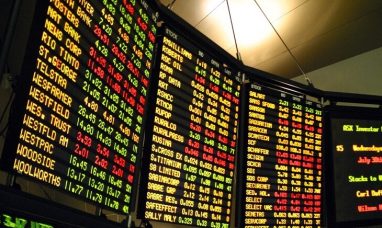The U.S. stock market experienced a rare three-day losing streak this week, highlighting growing stock market volatility. The S&P 500 fell 0.9%, marking its first consecutive losses since early September. The index, which recently reached an all-time high, pulled back after a six-week rally that saw consistent upward momentum.
The stock market volatility has been driven by several factors, including rising Treasury yields and a decline in Big Tech stocks like Nvidia (NASDAQ:NVDA) and Apple (NASDAQ:AAPL). In addition, concerns over corporate earnings and broader economic conditions have investors rethinking their strategies.
Rising Treasury Yields and Their Impact
One of the primary contributors to this recent downturn is the increasing pressure from rising Treasury yields. Higher yields can reduce investor appetite for stocks, especially those that seem overvalued relative to their earnings. Critics have warned that many stocks, particularly in the tech sector, had risen faster than corporate profits could support.
As Treasury yields climb, investors become more cautious about paying high prices for stocks, leading to greater stock market volatility. The yield on the 10-year Treasury rose to 4.23% from 4.21% the previous day, further amplifying concerns.
Jonathan Krinsky, a market strategist at BTIG, described the bond market’s movements as “slowly, then suddenly,” a sentiment that many stock investors are starting to echo as they grapple with the implications of these shifts.
Big Tech Stocks Weigh on the Market
Big Tech stocks, which have been among the market’s top performers, saw notable losses that contributed heavily to the overall downturn. Nvidia, a leader in artificial intelligence technology, saw its shares drop by 2.8%, while Apple fell by 2.2%. These declines underscore how quickly investor sentiment can shift when stocks are priced for perfection.
Nvidia, which had benefited significantly from the AI boom, has been facing growing concerns about whether its stock price has risen too high. As stock market volatility increases, companies like Nvidia and Apple, which have been leading the market, are now feeling the effects of heightened skepticism.
Corporate Earnings Fail to Impress
In addition to Big Tech’s decline, other major companies also reported earnings that failed to spark enthusiasm among investors. McDonald’s (NYSE:MCD) dropped 5.1% after federal health officials linked its Quarter Pounder burgers to an E. coli outbreak that affected 49 people across 10 states. While McDonald’s has stopped using fresh onions and certain beef patties in affected states, the investigation continues, and the uncertainty weighs on the stock.
Meanwhile, Coca-Cola (NYSE:KO) fell 2.1%, despite reporting stronger-than-expected profits and revenue. Investors focused on the fact that product shipments fell short of some estimates, signaling potential challenges ahead.
On the other hand, a few companies managed to deliver positive results amid the broader stock market volatility. AT&T (NYSE:T) rose 4.6% after reporting stronger profits than analysts had predicted. Texas Instruments (NASDAQ:TXN) also saw its shares climb 4% after reporting robust revenue growth in most sectors, despite a decline in revenue from industrial users.
International Market Trends
The stock market volatility wasn’t limited to U.S. exchanges. Japan’s Nikkei 225 slipped 0.8%, reflecting broader concerns in global markets. However, Tokyo Metro Co.’s stock surged in Japan’s largest market debut since 2018, following SoftBank Corp.’s public offering.
Meanwhile, Chinese markets posted gains for the second consecutive day after the central bank cut its Loan Prime Rates. The Hong Kong and Shanghai indexes rose by 1.3% and 0.5%, respectively, as investors welcomed the easing of monetary policy in China.
What Lies Ahead for the Stock Market?
The U.S. stock market remains under pressure as stock market volatility shows no signs of slowing down. Rising Treasury yields, Big Tech struggles, and underwhelming corporate earnings have shaken investor confidence. While some sectors, such as telecommunications and semiconductors, posted positive results, the overall market sentiment remains cautious.
With investors bracing for further rate cuts by the Federal Reserve, the bond market’s movements will continue to play a critical role in shaping the stock market volatility. Traders are largely expecting the Fed to lower rates by another half percentage point by year-end, a sentiment that has shifted drastically from just a month ago when rate hikes were the primary concern.
In this climate, investors will need to stay vigilant, balancing optimism with the reality of increased market risks.
Featured Image: Freepik © freepik






